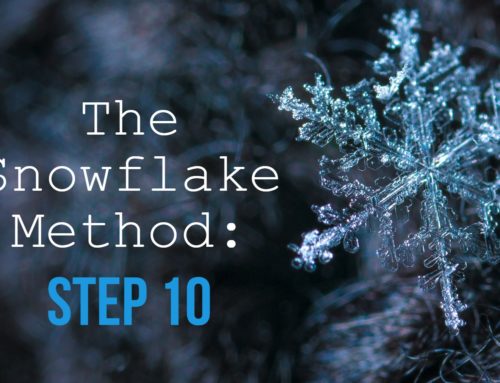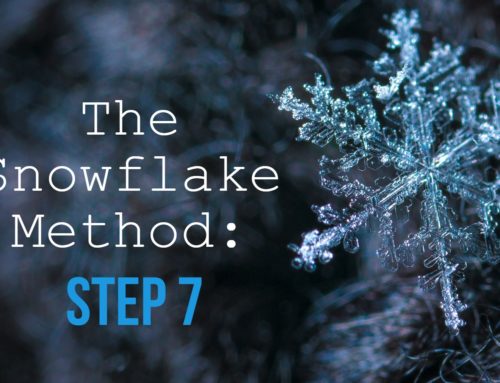Someone once said, “A writer is not a writer without an audience.” I don’t necessarily agree, but I will say this: a serious writer will not be satisfied until he or she finds one.
In one of my college writing courses, I had to read a book the craft of creative nonfiction. I vaguely recall how the author harped on the importance of selecting a cause you’re passionate about and then presented a very formulaic approach to making your case.
While struggling through page after page, I kept thinking, “Nothing about creative nonfiction seems very creative.”
I was a purist, you see, a storyteller whose tales were rooted firmly in fiction. I wanted to write novels, get my books on the shelves at Barnes & Noble, and maybe sign an autograph or two. Newspapers, magazines, journals—these media interested me not at all. And blogs? Don’t even get me started.
Fast forward a decade or so, and I find myself in my ninth year of writing for The (Fond du Lac) Reporter. Having served a few years as a true journalist—mostly focusing on features, not hard news—I now write a lifestyles column for Sunday editions as a freelancer. After working full-time for the newspaper, I went to the Dark Side (media relations and marketing), authoring feature stories for a university magazine and many more articles for the school’s online publication. These days, I regularly contribute to this blog and another blog for my current day job.
On average, I spend at least as much time, if not more, writing creative nonfiction than fiction.
How did this happen? For starters, I’ve been fortunate enough to find paying gigs where I can leverage my writing skills. Don’t we all want to get paid to do what we love—even if it’s not exactly like what we planned? Remembering next to nothing from that college textbook on creative nonfiction, I took would I could from my courses on fiction, particularly my solid grasp on grammar, and learned the rest along the way. Trial and error, patient colleagues, and a fair amount of reverse engineering were my tutors.
I like to think that my foundation in fiction translates to more engaging copywriting, but the truth is it works both ways: working with editors in the realms of journalism, PR, and marketing have made my prose tighter; my syntax, more succinct and impactful. In short, writing on a daily basis—and on deadline—has made me a better writer, regardless of whether that story is based on real events or borne of my imagination.
Perhaps more importantly, creative nonfiction has given me a crucial ingredient that I would not have had otherwise: readers.
Truth be told, I don’t get a lot of online comments for my newspaper column, but I know people read it because friends, relatives, and complete strangers mention various topics I’ve tackled. Even on the occasions when people disagree with my stance on an issue, I’m honored they’ve taken the time to read what I have to say—even more so when they take the time to chime in.
And at some point along the way, I’ve gone from believing I’m a good writer to knowing it. I have creative nonfiction to thank for that.
Every writer who wants to be published ought to keep the proverbial reader in mind when honing his or her craft. But having real, actual readers makes a huge difference. The traffic on this blog is modest at best, but when someone takes the time to subscribe or comment, it’s incredibly rewarding and motivating. A “like” on Facebook lets me know I’m not wasting my time.
That’s something my fiction has yet to yield. My early sword-and-sorcery novels garnered no interest from agents or editors; neither did a vignette I wrote in college, the only piece of short fiction I ever bothered to send out to magazines. With one of my novels under lengthy consideration by a major publisher, I find myself increasingly eager to share my fiction with the world.
Barnes & Noble might not be around by the time my novels see the light of day. And I no longer fantasize (much) about autographing the inside of my book covers. Getting paid to do what I love—in my genre of choice—will be a fringe benefit.
What I really crave are readers.
Self-publishing sounds less and less like a dirty word as time goes on. Nevertheless, I understand that my best shot at getting the most readers is going the traditional route. Which is why I’m tipping my toe in the murky waters of fiction publishing and sharing a certain short story with a select few—my first “fans.”
I’ve posted the story behind a password. If you want to join the elite ranks of my fiction readers, send me an email at author@david-michae-williams.com, and I’ll send you the password.
(Why the cloak and dagger? I’m considering submitting this short story to magazines and/or other appropriate venues, and I don’t want to preempt publication elsewhere by technically self-publishing the story here. Hence, these steps to keep it relatively private.)
Even if only one or two people take the time to read it, it’ll be worth my effort.
Meanwhile, as I work and wait for my fiction to take off, I feel privileged to have other channels—my creative nonfiction—to connect with readers.
—Editor’s note: what else do writers need to succeed? Find out here.



I don’t write a lot of short fiction, but here’s a free (“self-published”) sample from many, many years ago: http://david-michael-williams.com/2012/04/16/a-very-different-kind-of-hunger-games/
Very interesting post. It is funny how many people read and don’t comment, isn’t it? So the link you posted above in comments? I hear you too about posting on the blog and then not being able to publish again so easily.
The link I posted in the comments leads to a story that is probably as unpublishable as they come (lots of brand names and trademarked characters). The story at http://david-michael-williams.com/viral is password protected. If you’d like to read it, I can email you the password.
Sorry for the confusion!
Thank you for articulating what so many other writers are afraid to acknowledge: we are artists; we want to share our art; and we want feedback from those we share it with.
It’s something of a paradox, isn’t it? We live in an era when publishing and communication have reached unprecedented efficiency. Anyone can share a novel, and anyone can tell the author what he/she thinks of it. I wish I were more optimistic, but it just seems like chaos at the moment (see my post “I should be thanksful, but…”).
I started a writers group on my college campus. Whenever I have to hold off plans with other friends to attend meetings I always get the strangest looks. It’s funny. We’re an odd group of kids, probably wouldn’t hand out much if not for this…but the common desire for honest feedback and others to help us through our writing struggles has brought us together. It’s truly been awesome.
Glad to hear it! It’s amazing how difficult it can be to find honest, constructive feedback!